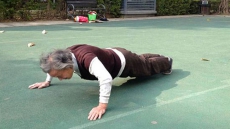Steven Purewal, author of Duty, Honour & Izzat, has taken it into his hands to stir change when it comes to recognizing the role of Punjabi solders in pivotal global events. “The answer is not just for our own children. It is also for our community and all Canadians.”
History is an enabler of understanding – be it of people, policies or practices. However, the sources from which we gain access into the past are often subjective and subject to omission of specific facts. Founder of Indus Media Foundation Canada and community historian, Steven Purewal, has taken it into his hands to stir change when it comes to recognizing the role of Punjabi solders in pivotal global events. In April 2019, Purewal will have released his debut graphic novel, Duty, Honour & Izzat, presenting the Indo-Canadian community’s pioneer experience within the events leading to the ejection of the Komagata Maru from Canadian waters in July 1914 and the subsequent outbreak of the Great War in August 1914.

The British-born author comes with a background in technology, having earned an MSc in Business Systems Analysis and Design City from the University of London. Purewal has had interest in military history all his life. When asked about how he came about to writing the book, Purewal recalls that his three children, all attending public schools in Surrey, would often question him on a missing Punjabi presence in school history classes or in the media. Purewal decided to proactively respond by leaving a literary footprint for all, “The answer is not just for our own children. It is also for our community and all Canadians.”

Purewal emphasizes that literature can become a bridge of communication between youth and community organizations, such as temples. Considering the First World War, the cause was to defend the innocent lives of the French and Belgium against German aggression. As Punjab itself was never attacked by Germany, Sikh soldiers fighting in the war is portrayal of selfless service, which is within the religious mandate of service to humanity, Sarbat Da Bhala. Further, Punjabis are the only community, of 200 Canadian ethnicities, that fought in Flanders Field and helped Canada in its founding moment of identity and independence. In fact, Purewal adds, “Sikhs were never accused of any war crimes, known to treat prisoners humanely, yet showcase courage and valiance in combat.” Tying into the spirit of Charhdi Kala and the chivalry of being a Sant Sipahi or Saint Soldier, this history creates a connection with youth.

Deeply embedded in popular culture, negative identities have been put in place by public institutions, government and the media; it is essential to define positive identities so that coming generations are not impacted by preexisting stereotypes. Apart from the communal lens, the book also contains information for the mainstream to secularly use in understanding how different communities came together and contributed to Canada’s democracies. It is a step towards teaching our children that they have every right to make a stake in Canadian society. That said, Purewal understands that children and youth often repel books, which is why the graphic novel serves as an effective medium of communication. “There is actually a story that compels you to read on. After reading, it goes into your system and you absorb. At this point, kids ask questions, creating an opening for educators,” explains Purewal.

From an educational standpoint, it is easy to blame a flawed education system and passively accept that Canada discriminates against non-European history. Purewal does not just point out the problem but offers a solution as the book is a platform containing history, dates and events – tools for teachers to create lessons. Sponsored by community members, the book is a community- based effort to take action and move beyond the rhetoric.
When asked about his vision, Purewal’s plans are to engage and advocate the book’s use in the community and across the country. Evidently, the global community can only pave the way towards a better future by truly understanding the riches of our history.




